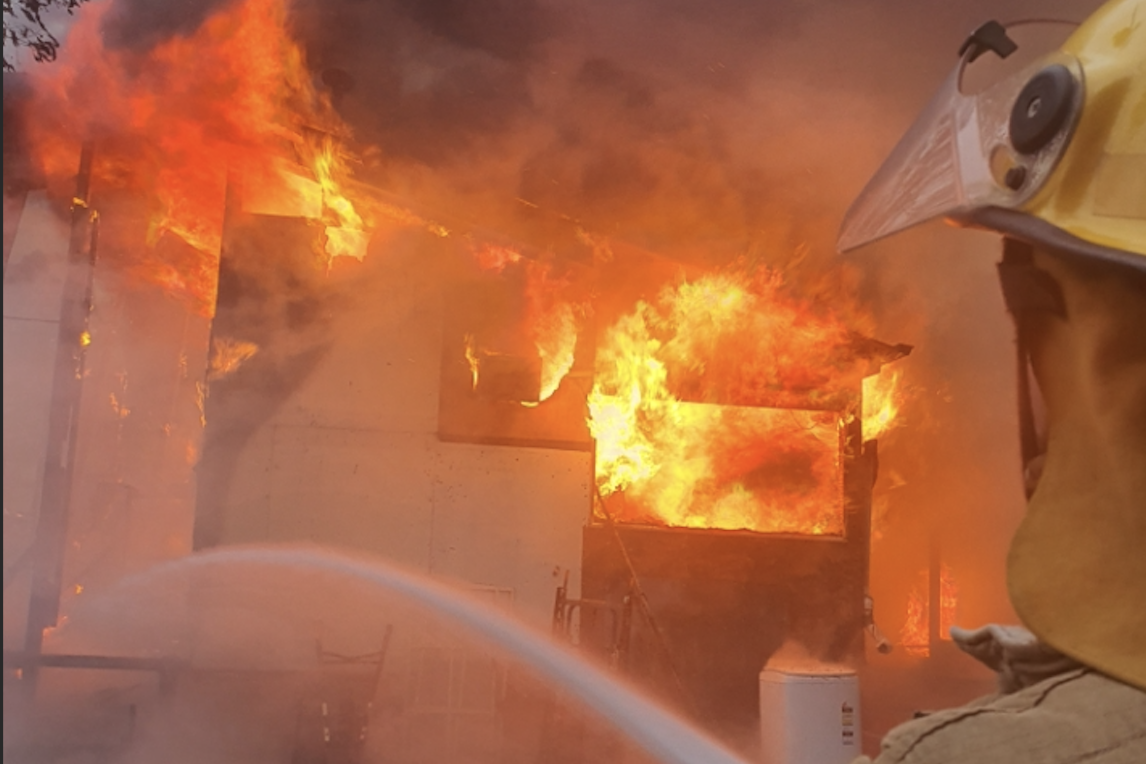General News
24 June, 2025
Fire sparks safety reminder
Locals are warned of the dangers of lithium-ion batteries following a fire that destroyed a shed in Maldon earlier this month.

The CFA has put out a fresh round of warnings after 11 units responded to a shed fire in Maldon on June 16.
The fire, which crews stopped from spreading to the nearby residence, is believed to have started in a device containing a lithium-ion battery stored in the shed.
Critical to the modern world most people likely carry around lithium-ion batteries every day.
The most common batteries used in rechargeable devices they can be found in laptops, mobile phones, e-scooters, and power tools.
Despite how normal they are, the CFA said the main reasons they short circuit and catch fire is from incorrect charging (using chargers not designed for the device), damage, and long-term exposure to water causing corrosion.
In a process called thermal runaway, a lithium-ion battery fire can spark and have jet-like flames.
The challenge for firefighters, Goldfields Group Officer Peter Higgins explained, is that lithium-ion battery fires reignite and create toxic fumes.
“The biggest problem is you can’t put them out,” he said.
“[The fumes are] heavier than air. It makes it’s way along the cement, like a steam cloud making its way along the ground.”
Because of the unique challenge these fires pose, Mr Higgins said it’s very important firefighters have time to prepare when responding.
“Tell Triple Zero (000) that it’s an electrical fire so [firefighters] can be prepared when they get on scene,” he said.
CFA District 2 Assistant Chief Fire Officer Dean Simmons said Victorians need to be careful when charging and storing rechargeable devices.
“When dealing with lithium-ion batteries, only use the charger that came with your device, or one that’s been certified as compatible,” he said.
“Only purchase and use devices and equipment from reputable manufacturers and suppliers.”
The ACCC also recommends consumers:
Store lithium-ion devices in a cool, dry place.
Buy replacement batteries from the original supplier or a reputable supplier where possible.
Monitor devices when they are charging, disconnecting them when full.
Charge devices on a non-flammable surface.
Safely dispose of lithium-ion batteries or products. Don’t throw them away in household rubbish, recycling or hard waste collections.
Mr Simmons stressed the importance of early recognition through interconnected smoke alarms.
“Interconnected smoke alarms are a must, especially in areas where you regularly charge devices,” he said.
“Early detection gives you the best chance to act quickly if something goes wrong.”
For example, Mr Higgins said if a device catches fire and it’s safe to do so try moving it out into the open while also calling Triple Zero (000).
“Just be very careful,” he said.